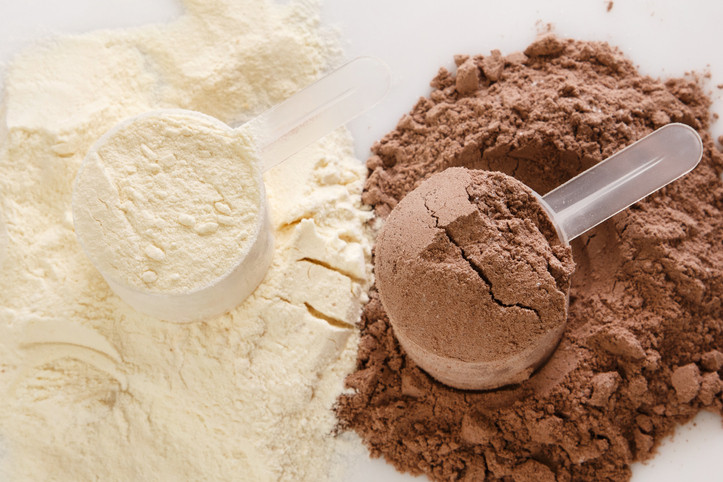
Eating enough protein is not just for athletes or would-be Schwarzenegger types. It is necessary for a healthy immune system and required for organs like your heart, brain, and skin to function properly. The nutrient is also touted for its ability to help control appetite and enhance muscle growth.
How much protein you need typically depends on your exercise routine, age, and health. And whether to supplement protein intake with a protein powder has become a common query.
A CLOSER LOOK TO PROTEIN POWDER
To make such supplements, protein is extracted from animal or plant-based sources, which range from cow’s milk and eggs to peas, rice, and soy. During processing, naturally occurring carbohydrates, fats, minerals, and fiber are often removed, while supplementary nutrients, herbs, and even sweeteners may be added.
Anyone considering protein powder should understand that it is classified as a dietary supplement, which means it is not regulated in the same way as food or medicine. Responsibility falls on manufacturers to ensure that their products are not hazardous, though many companies do not test for safety or efficacy before their offerings hit shelves. Though the FDA created Good Manufacturing Practices (GMPs) to help minimize adverse issues, compliance with these procedures remains a concern. In 2017, roughly a quarter of supplement-manufacturing companies whose products were tested received citations related to purity, strength, and ingredient content.
That said, there are accredited organizations, like NSF International, that independently test supplements, including protein powders. NSF’s “Certified for Sport” designation ensures that contents match what is on the label, and that the product is GMP-registered and does not contain unsafe levels of toxic metals like arsenic and mercury.
HOW MUCH PROTEIN DO YOU NEED?
How much protein you need is another crucial consideration when deciding whether you might benefit from supplementing your diet. The amount thought to be adequate for most healthy people, called the Recommended Dietary Allowance (RDA), is set at 0.8 grams per kilogram. For someone who weighs 150 pounds, this translates to roughly 55 grams of protein; a 200-pound person requires about 70 grams of protein. Certain athletes undergoing intense training may enhance their progress by consuming more than double the RDA, but this doesn’t apply to most of us.
MOST PEOPLE CAN GET ENOUGH PROTEIN FROM THEIR DIET
One egg, one half-cup of chickpeas, or a small handful of nuts all provide roughly 6 grams of protein. A piece of chicken or fish the size of a deck of cards offers about 30 grams.
For many people, it is relatively easy to reach recommended amounts through their usual diet. On average, Americans consume 65 to 90 grams of protein each day. (Young women under the age of 19 and seniors older than 70 are more likely to be at risk for low protein intake.)
Research suggests older adults and exercisers looking to support muscle growth may benefit from eating one-and-a-half to two times as much protein as the RDA. As we age we lose muscle, and research shows boosting protein may help increase strength and lean body mass. But unless you have a restricted diet, such as a strict plant-based or vegan regimen, this increase is often still achievable through food.
Though pregnant women have slightly elevated protein needs, they should consult an obstetrician or dietitian if considering protein supplements, as companies sometimes add potentially unsafe ingredients like ginkgo or papain to protein powders. Also, individuals with kidney disease often benefit from consuming marginally less protein than the RDA, and should talk to a healthcare provider before supplementing with protein.






